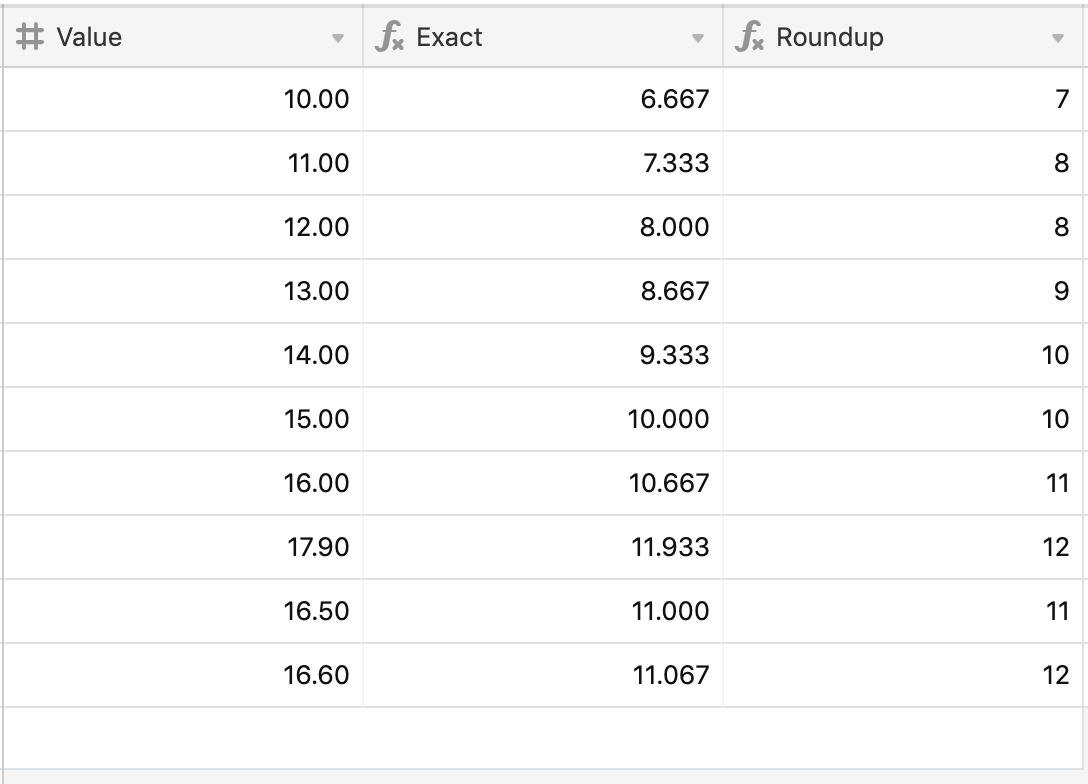I’m a bit of a newbie and my apologies if this covered elsewhere, I just can’t seem to find the right answer.
I have this formula below to calculate the total weight/value based on calculations below.
I am trying to round up the total to the next 1.5kg because the product comes in tins of 1.5kg.
So I need to calculate:
IF(Fumigant=“FUMITOXIN (ALP)”,ROUNDUP(({H1 vol}Dosage3.0/1000/1.5)*1.5)))
H1 Volume= 5314 * Dosage=1.0 3.0/1000/1.51.5 at the moment it’s equaling 16kg and it should be 16.5
How do i get it to display the .5? Formatting has been set to Decimal 1.00
16.5kg / 1.5kg = 11 TINS
I hope I’m making sense




